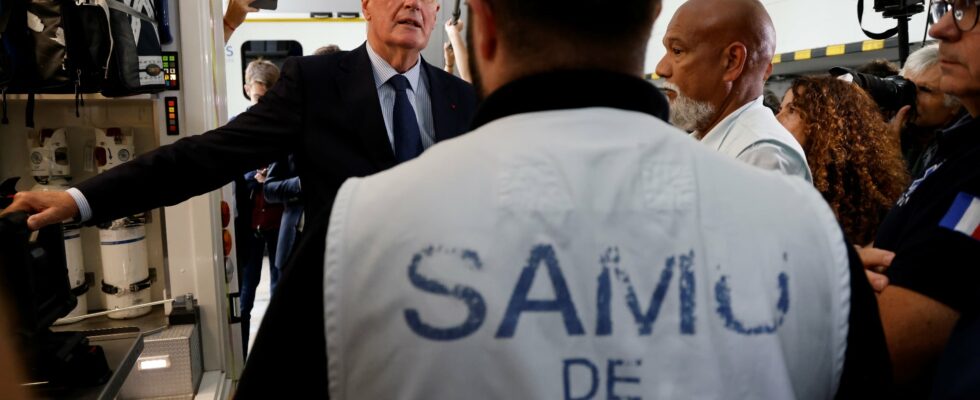Last April, then Prime Minister Gabriel Attal promised to “double” the number of doctors who graduate from the faculty each year. The measure, based on the number of students at the start of Emmanuel Macron’s second five-year term, was to be completed by 2027. The goal: to eradicate medical deserts. Matignon was to reveal its outlines this summer, but in the meantime, the National Assembly was dissolved, and Gabriel Attal had to leave his post.
Now in the hands of Michel Barnier, the reform, crucial given the interest that the French have in this subject, promises to be delicate. Barely appointed on September 5, and while he has not yet formed a government, the new occupant of Matignon has already been warned about the difficulty of meeting such deadlines. Meeting for their back-to-school conference this Thursday, September 12 at the Sorbonne, the deans of French medical universities have in fact judged the deadline set to be “unrealistic”, because too ambitious in relation to the means implemented.
From 8,000 in 2022, the number of students trained each year has already increased to 11,000 in 2024. According to our information, the previous executive planned for 1,000 additional students in 2025, then 2,000 in 2026 and 2027, to reach 16,000 in total. An unsustainable pace, according to academics: “The faculties are overflowing and we were already short of 1,000 teachers before the reform was announced. We need significant additional resources,” explained Benoît Veber, president of the deans of medicine, on Thursday.
The latter consider the time allotted, barely three years, too short to train enough teachers and carry out the real estate developments necessary to accommodate twice as many students. “This is a ramp-up that should normally take place over five to ten years,” stressed Benoît Veber, who was due to meet Gabriel Attal before he was abruptly dismissed from his duties.
Attal’s plan
During the transfer of power, Gabriel Attal claimed to have “worked” in recent months to make the reform a reality. “This work was to be presented this summer. It is on your desk, Mr. Prime Minister,” he even declared on the steps of Matignon, effectively ordering his successor to continue the work. “You will allow me to add my own added value,” the person concerned had then replied, rejecting the attempt to present him with a fait accompli.
Where are we really at today? Contacted, Gabriel Attal’s former team told L’Express that they had formed “a vademecum“for the continuation of operations. “We left the Prime Minister a list of what we would have liked to do, the steps to follow to successfully carry out the reform. It includes a certain number of avenues, with contacts to contact, and the number of places that we hoped to free up in this way.”
Gabriel Attal was trying in particular to “find”, in collaboration with the Ministry of Health, “additional internship sites for these new students, particularly in community medicine”. “A financial envelope has also been identified. The draft finance bill should make it possible to channel around ten million additional funds, which would have been added to an allocation of 2 million already approved”, specifies the entourage of the former Prime Minister.
“The cart before the horse”
According to our information, this outline was not, however, enacted in an interministerial meeting. Similarly, to date, no assessment has been made of the number of university doctors who could be mobilized, or of the work to be carried out to expand the faculties. “The reform was announced before its feasibility was known. We put the cart before the horse. Gabriel Attal can boast of having been the minister who decided on the doubling. But behind that, everything remains to be done,” regretted the representative of the deans, Benoît Veber.
A mode of operation assumed by the former cabinet at Matignon. “It is a political choice, an objective for the Nation. If we set objectives only in cases where we are sure to meet them, we would not move forward. So yes, we are proactive. Now, obviously, we (Editor’s note: the next government) must give ourselves the means, otherwise the deans are right, the quality of education risks deteriorating.”
By reserving his first trip to the emergency services of the Necker hospital in Paris, the new head of the executive has placed health among his priorities. “Progress” can still be made, Michel Barnier had declared at the time regarding access to care, while specifying that miracles should not be expected, particularly because of the savings that should weigh on the future budget.
.
